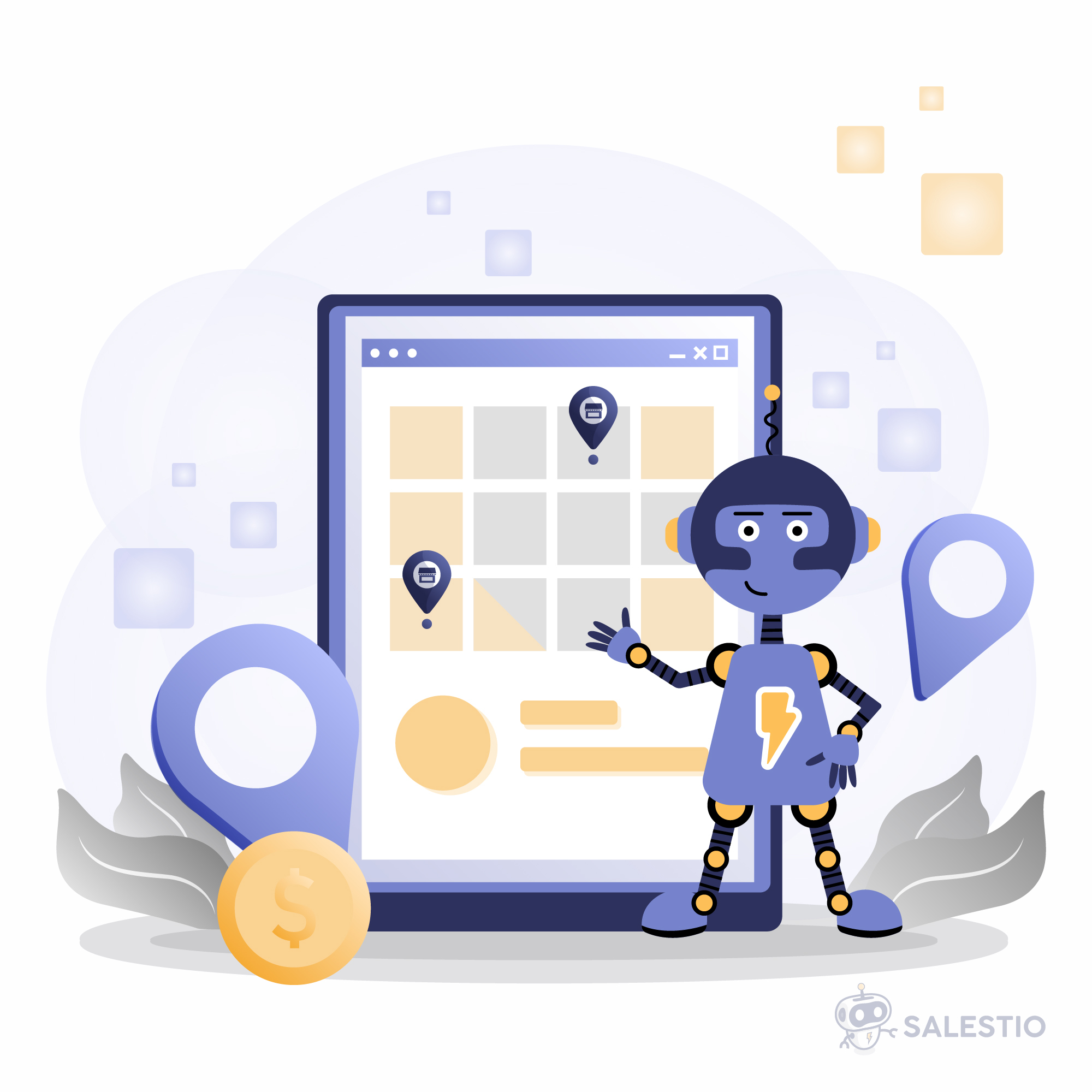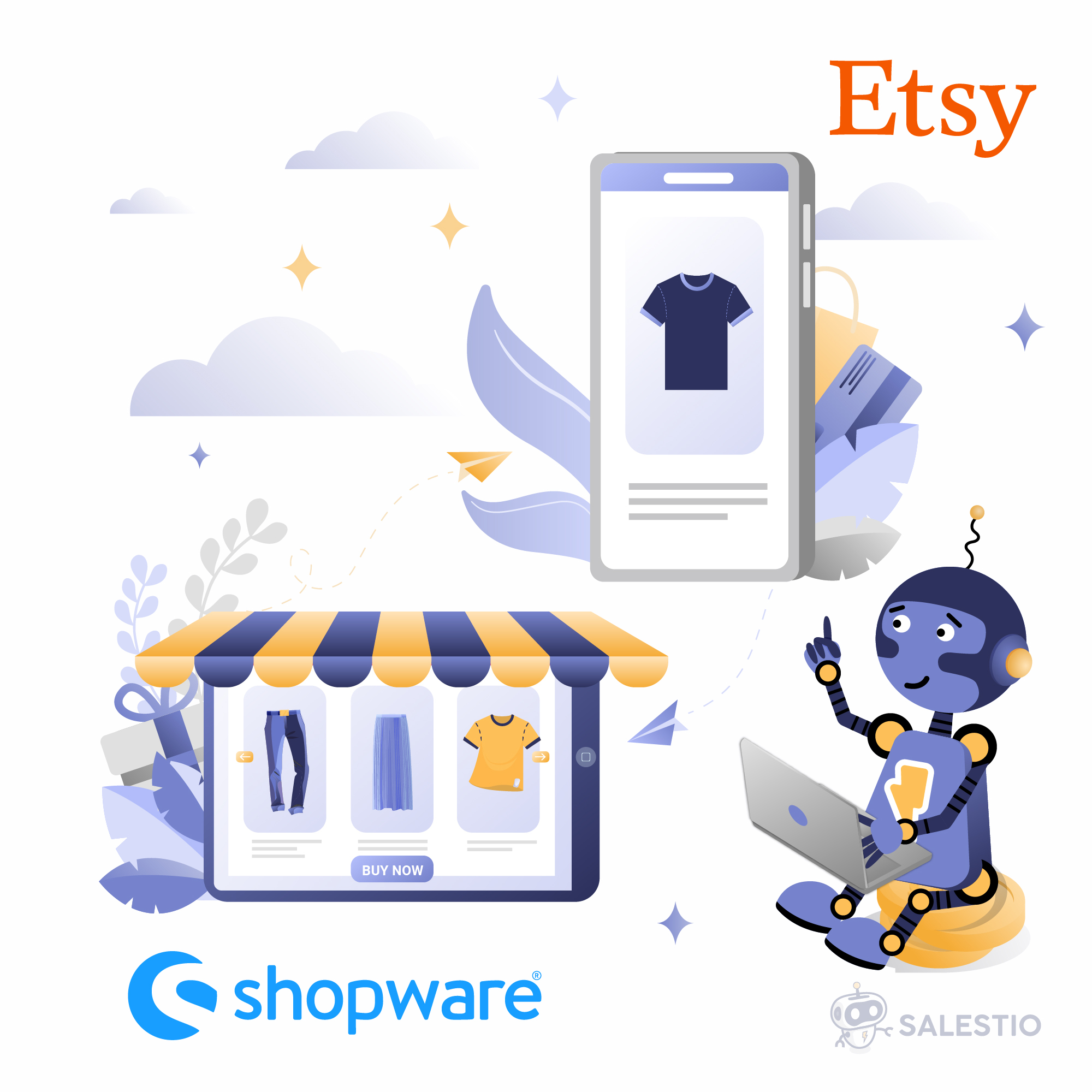10 Feb'23

Today we would like to talk about the crucial role of data and analytics in the success of e-commerce businesses. From understanding the data to data-driven decision-making, customer insights, and competitor analysis, we will cover all the essential elements of how businesses can leverage data to achieve success in the online marketplace.
Introduction
Data and analytics have become increasingly important in the world of e-commerce, as online marketplaces like Amazon, eBay, and Etsy use them to gain a competitive advantage and drive business success. In today’s digital age, the ability to collect, analyze, and make decisions based on data has become a crucial aspect of running a successful e-commerce business.
Data has the power to provide valuable insights into customer behavior and preferences, competitor activity, and much more. By leveraging this information, businesses can make informed decisions about their products, pricing, and marketing strategies. In addition, data can be used to track the success of these decisions and make adjustments as needed, ensuring that a business is always moving in the right direction.
Online marketplaces like Amazon, eBay, and Etsy have long recognized the value of data and analytics. These companies use data to monitor and understand customer behavior, as well as to inform their business decisions. For example, Amazon uses data to suggest products to customers based on their previous purchases, while eBay uses data to monitor competitor activity and adjust its pricing accordingly.
The importance of data and analytics in e-commerce cannot be overstated. By leveraging this information, businesses can gain a competitive edge and drive their success in the online marketplace. Whether you are just starting an e-commerce business or are looking to improve your existing operation, understanding the role of data and analytics is crucial. This article will explore the key aspects of data and analytics in e-commerce, providing valuable insights and advice for businesses of all sizes.
Understanding the Data
The first step in leveraging the power of data and analytics in e-commerce is understanding the types of data that are relevant to your business. There are many different types of data that can be collected and analyzed, including customer behavior data, sales data, and competitor data, to name a few. By understanding the types of data that are relevant to your business, you can ensure that you are collecting the right information and using it to inform your decisions.
Once you have a good understanding of the types of data that are relevant to your business, the next step is to collect, store, and process this data. There are many different tools and technologies available that can help you collect data from a variety of sources, including your website, social media accounts, and customer feedback. It is important to choose a data collection and storage solution that fits your needs and budget, as well as one that is secure and protects the privacy of your customers.
Data processing is the next step in the data journey, and it involves transforming raw data into meaningful insights and information. This may include cleaning and organizing the data, removing any irrelevant or duplicate information, and converting the data into a format that can be easily analyzed. There are many tools and technologies available that can help with data processing, including spreadsheets, databases, and specialized analytics tools.
Once your data is collected, stored, and processed, it is ready to be analyzed. The insights and information that you can gain from your data can help inform your business decisions and drive success in the e-commerce marketplace. However, it is important to approach data analysis with a critical eye, as data can sometimes be misleading or misinterpreted. This is why it is important to have a solid understanding of data analysis methods and techniques, as well as a clear understanding of the data that you are working with.
E-commerce platforms like Shopify, WooCommerce, and Bigcommerce all make it easy for businesses to collect and analyze data. Shopify, for example, provides built-in analytics tools that allow businesses to track sales, monitor customer behavior, and understand their overall business performance. This information can be used to inform decisions around products, pricing, and marketing strategies, ensuring that businesses are always moving in the right direction.
With WooCommerce, on the other hand, businesses can collect data from a variety of sources, including their website, social media accounts, and customer feedback. This data can be also used to understand customer behavior, track sales, and monitor competitor activity. With a big number of third-party plugins that help with different types of activities, it’s a perfect example of the various types of customization you can do.
Bigcommerce is another e-commerce platform that provides businesses with powerful data and analytics tools. Bigcommerce provides businesses with a variety of built-in analytics tools, including real-time reporting and detailed sales analysis, ensuring that businesses have the information they need to make informed decisions and drive success in the e-commerce marketplace.
Understanding the data that is relevant to your business is the first step in leveraging the power of data and analytics in e-commerce. By collecting, storing, processing, and analyzing this data, you can gain valuable insights and make informed decisions that will drive success in the online marketplace. Whether you are just starting an e-commerce business or are looking to improve your existing operation, understanding the role of data in e-commerce is crucial.
Data-Driven Decision Making
Data is the foundation of all informed business decisions, and this is particularly true in the world of e-commerce. By collecting and analyzing data, e-commerce businesses can make informed decisions about product selection, pricing, and marketing strategies. For example, data can be used to identify popular products and best-selling categories, allowing businesses to make informed decisions about what products to stock and how to price them. Additionally, data can be used to understand customer behavior, helping businesses make informed decisions about how to market their products and reach their target audience.
In the world of e-commerce, testing, and experimentation are crucial to success. By testing different pricing strategies, product offerings, and marketing campaigns, businesses can gather valuable data about what works and what doesn’t. This data can then be used to inform future decisions, helping businesses continuously improve and grow their operations. For example, an e-commerce business might test different pricing strategies for a particular product to determine what price point is most appealing to customers. This data can then be used to inform future pricing decisions, ensuring that the business always offers products at the optimal price.
Testing and experimentation are also crucial when it comes to marketing strategies. By testing different marketing campaigns and measuring their effectiveness, businesses can determine what works best and make informed decisions about how to allocate their marketing budget. For example, an e-commerce business might test different email campaigns to determine what subject lines, call-to-actions, and designs are most effective in driving sales. This data can then be used to inform future marketing decisions, ensuring that the business is always maximizing its marketing efforts.
Data and analytics can also be used to monitor and understand competitor activity, helping businesses stay ahead of the curve and make informed decisions about how to differentiate their products and services. For example, an e-commerce business might use data to track competitor pricing and marketing strategies, identifying opportunities to offer unique products and services that set them apart from the competition.
Data plays a crucial role in the success of e-commerce businesses. By collecting and analyzing data, businesses can make informed decisions about product selection, pricing, and marketing strategies. Testing and experimentation are also essential in the e-commerce world, as they help businesses continuously improve and grow their operations. Whether you are starting a new e-commerce business or looking to improve your existing operation, understanding the importance of data and analytics is key to success.
Customer Insights
Data is a powerful tool for gaining insights into customer behavior and preferences. By collecting and analyzing data about customer interactions with your e-commerce store, you can learn about their purchasing habits, what products they prefer, and what motivates them to make a purchase. This information can be used to improve the customer experience and increase sales.
For example, data can be used to understand the customer journey, from their initial visit to your store to their final purchase. This information can be used to identify pain points in the customer experience and make improvements that lead to a more positive experience. By understanding what drives customer behavior, you can make informed decisions about how to improve the customer experience, resulting in increased customer loyalty and sales.
Data can also be used to gain insights into customer preferences and buying habits. For example, data can be used to identify which products are most popular, which categories are selling the best, and which products are selling at a discount. This information can then be used to make informed decisions about what products to stock, how to price them, and how to market them to customers.
Shopify, BigCommerce, and WooCommerce all provide a variety of reports and analytics tools to help e-commerce businesses gain customer insights. These tools allow businesses to track sales and customer behavior, understand what drives customer behavior, and identify trends and patterns in customer behavior. Additionally, these platforms offer a variety of integrations with other analytics and marketing tools, making it easier to collect and analyze data from a variety of sources.
For example, Shopify provides a range of reports that allow businesses to track sales, monitor customer behavior, and gain insights into their business performance. Additionally, Shopify offers a variety of integrations with other analytics and marketing tools, making it easy to collect and analyze data from a variety of sources.
BigCommerce also provides a range of reports and analytics tools, including sales reports, customer behavior reports, and product performance reports. These tools allow businesses to track their performance, understand what drives customer behavior, and make informed decisions about how to improve their operations.
WooCommerce also offers a range of reports and analytics tools, including sales reports, customer behavior reports, and product performance reports. Additionally, WooCommerce offers a variety of integrations with other analytics and marketing tools, making it easy to collect and analyze data from a variety of sources.
Data is a valuable resource for gaining insights into customer behavior and preferences. By collecting and analyzing this data, e-commerce businesses can improve the customer experience and increase sales. Whether you are just starting an e-commerce business or are looking to improve your existing operation, understanding the role of customer insights in e-commerce success is crucial.
Competitor Analysis: Staying Ahead of the Game
Data and analytics play a crucial role in helping companies monitor and analyze the activity of their competitors. This information can inform business strategies and help companies stay ahead of the competition. By using data to gain a comprehensive understanding of the market, companies can make informed decisions and stay ahead of their competitors.
One of the key benefits of competitor analysis is the ability to identify trends and shifts in the market. This information can help companies stay ahead of the curve and make changes to their strategies before their competitors do. Companies can also use data to analyze the pricing strategies of their competitors and make informed decisions about pricing their own products.
Another important aspect of competitor analysis is monitoring the marketing strategies of competitors. Companies can use data to see what types of marketing campaigns are working well for their competitors and make changes to their own campaigns accordingly. This information can also help companies identify opportunities to differentiate themselves from their competitors and stand out in the market.
Examples of services that offer competitor analysis include SEMrush, SimilarWeb, and others. These services provide detailed insights into competitor activity, including traffic, rankings, and backlinks. Companies can use these insights to inform their own strategies and stay ahead of the competition.
In order to make the most of competitor analysis, it’s important to have a clear understanding of your target market and the types of customers you are trying to reach. Companies can use data to segment their customers and gain a better understanding of their needs and preferences. This information can then be used to inform business strategies and make data-driven decisions.
Competitor analysis can be a complex process, and it’s important to approach it with a strategic mindset. Companies should focus on using data to inform their decisions and make informed data-driven choices. By staying ahead of the competition, companies can improve their bottom line and achieve long-term success.
Conclusion: Harnessing the Power of Data and Analytics in E-commerce
In this article, we’ve explored the role that data and analytics play in e-commerce success. From understanding the types of data that are relevant to e-commerce businesses to use data to inform business decisions, we’ve seen the many ways that companies can harness the power of data and analytics to drive growth and improve their bottom line.
We’ve discussed how online marketplaces like Amazon, eBay, and Etsy use data and analytics to their advantage and how businesses can use customer insights and competitor analysis to stay ahead of the competition. We’ve also seen the importance of testing and experimentation in decision making, and the role that data can play in driving innovation and improvement in the customer experience.
The future of data and analytics in e-commerce is bright, and the potential for even greater success is immense. As technology continues to advance, businesses will have access to even more data and insights that can inform their decisions and help them stay ahead of the competition. Companies that invest in data and analytics will be well-positioned to drive growth and achieve long-term success.
In conclusion, data and analytics play a crucial role in the success of e-commerce businesses. By understanding the types of data that are relevant to their business and using this information to inform their decisions, companies can harness the power of data and analytics to drive growth and achieve long-term success.
Boost your e-commerce success with the power of data and analytics. Salestio, the multichannel management solution, brings all your sales from multiple marketplaces like Amazon, eBay, and Etsy into a single platform for streamlined data analysis. With Salestio, you can make informed business decisions and stay ahead of the competition. Start your free 30-day trial today and see the results for yourself!






